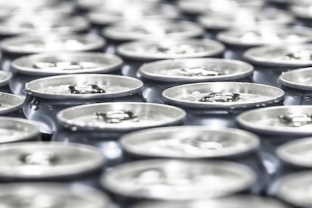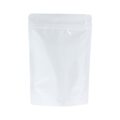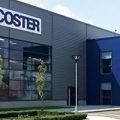Can Filling Companies (Co-Packers): Key Elements of the Beverage Supply Chain
Introduction:
In the beverage industry, can fillers, known as co-packers, play a vital role in the supply chain, providing essential packaging and production services to beverage brands of all sizes.
These companies allow brands to focus on product development, marketing and sales, while co-packers handle physical production. This article provides a detailed overview of the operations, technology and challenges facing can filling companies.
Functions and Services of a Co-Packer:
A typical co-packer offers a range of services including, but not limited to, beverage formulation, blending, carbonation, can filling, sealing, labeling, packaging and logistics.
Some co-packers also offer product development and laboratory testing services to ensure quality and compliance with food regulations.
Can Filling Technology:
Technology is a crucial component in can filling operations. State-of-the-art filling machines can handle a wide range of liquid viscosities and can types, ensuring accuracy and efficiency. Automated filling lines are equipped with sensors and control systems to monitor seal integrity, fill weight and the presence of foreign bodies, thus ensuring product safety.
Quality and Regulations:
Co-packers must adhere to strict food safety regulations, such as Good Manufacturing Practices (GMP) and the Food Safety Modernization Act (FSMA). Product traceability and quality management systems are essential to prevent contamination and ensure product consistency.
Challenges and Considerations: Co-packers face several challenges, such as managing demand variability, optimizing production line efficiency and reducing operating costs. Sustainability is also an important consideration, with a focus on reducing material waste and optimizing resource use.
Selection of a Co-Packer:
Beverage brands should consider several factors when selecting a co-packer, including production capacity, experience with similar products, geographic location, quality certifications and flexibility to adapt to changing needs.
Conclusion: Can fillers are strategic partners in the beverage industry, providing the infrastructure and expertise necessary to bring high quality products to market efficiently. As the industry evolves, co-packers will continue to innovate and adapt to meet the demands of a dynamic and increasingly environmentally conscious marketplace.
can filler or co-packer companies
Can fillers or co-packers offer a number of significant advantages for beverage brands, including water, energy drinks and other types of canned beverages. Some of these advantages are detailed below:
- Expertise and Experience: Co-packers have specialized knowledge in the beverage filling and packaging process, which ensures a high quality end product. Their industry experience enables them to handle a variety of technical and compliance challenges.
- Cost Reduction: By outsourcing production to a co-packer, brands can avoid the significant expenses associated with building and maintaining an in-house production facility. This includes investment in expensive machinery, as well as ongoing operating expenses such as electricity, maintenance and personnel.
- Flexibility and Scalability: Co-packers can offer greater flexibility in production, allowing brands to quickly adjust production volumes in response to market demand. This is especially valuable for emerging companies or for products with seasonal or unpredictable demand patterns.
- Efficiency and Speed to Market: Co-packers can accelerate a product’s time to market thanks to their established and optimized production lines. This is crucial in a competitive market where speed to the shelf can be a key determinant of success.
- Focus on Core Business: By outsourcing production, brands can focus on their core competencies, such as product development, marketing and sales, leaving production in the hands of experts.
- Innovation Capability: Co-packers often have access to the latest packaging technologies and can offer innovative solutions that may not be available to brands on their own.
- Regulatory Compliance: Co-packers are equipped to comply with food safety regulations and quality standards, reducing risk to brands and ensuring that products meet the expectations of consumers and authorities.
- Sustainability: Some co-packers offer sustainable packaging options and environmentally friendly production practices, which can enhance brand image and meet consumer demand for environmentally responsible products.
- Access to Distribution Networks: Co-packers may have established relationships with distribution and logistics networks, which can facilitate a brand’s entry into new markets or sales channels.
- Risk Management: Outsourcing the production process to a co-packer can help mitigate operational and financial risks, especially for smaller or new-to-market brands.
In summary, working with can fillers or co-packers offers beverage brands the opportunity to operate more efficiently and effectively, leveraging the expertise and resources of third parties to improve their market position and profitability.
Can fillers or co-packers can a wide range of beverages
Can fillers or co-packers can can a wide range of beverages, adapting to the needs and specifications of their customers. The following are some of the types of beverages that are commonly canned, along with examples and characteristics of their qualities and formulas:
- Carbonated Beverages:
- Example: Traditional soft drinks.
- Qualities: Contain carbon dioxide to create bubbles and effervescence.
- Formula: Carbonated water, sugar or sweeteners, acid (such as citric acid), natural or artificial flavors, colorings and preservatives.
- Beers:
- Example: Craft and premium beers.
- Qualities: Vary from light and refreshing to rich and complex, with a range of flavors and degrees of bitterness.
- Formula: Water, barley malt, hops, yeast and sometimes additional ingredients such as fruits or spices.
- Canned Wines:
- Example: Sparkling or still wines.
- Qualities: They offer the same quality as bottled wine, with the advantage of individual servings and portability.
- Formula: Fermented grapes, sometimes with addition of carbon dioxide for sparkling wines.
- Energy Drinks:
- Example: Drinks with caffeine and taurine.
- Qualities: Designed to increase energy and mental focus.
- Formula: Caffeine, taurine, B vitamins, sugars or sweeteners, amino acids, herbal extracts and water.
- Flavored and Functional Waters:
- Example: Waters with electrolytes or flavored with fruit extracts.
- Qualities: Hydration with a hint of flavor, often with added benefits such as vitamins or minerals.
- Formula: Water, electrolytes (such as sodium and potassium), natural flavorings, sometimes sweeteners and vitamins.
- Ready-to-Drink (RTD) Teas and Coffees:
- Example: Sweetened iced tea or cold coffee with milk.
- Qualities: Vary from sweet and creamy to strong and bitter, with decaffeinated or caffeinated options.
- Formula: Tea or coffee infusion, water, sugar or sweeteners, milk or milk alternatives, preservatives and flavors.
- Cocktails and pre-mixed alcoholic beverages (RTD):
- Example: Margaritas or mojitos in cans.
- Qualities: They offer the convenience of a pre-mixed cocktail with a consistent taste.
- Formula: An alcohol base such as tequila or rum, mixers such as lime or mint juice, sweeteners and water.
- Supplements and Sports Drinks:
- Example: Drinks with amino acids and proteins.
- Qualities: Designed for muscle recovery and rehydration after exercise.
- Formula: Proteins or amino acids, electrolytes, vitamins, sweeteners, flavors and water.
It is important to note that formulas can vary widely between brands and specific products. Co-packers work closely with their customers to develop and fine-tune formulations that meet product objectives and food safety regulations.
In addition, consumer trends toward healthier and more sustainable products are driving co-packers to innovate in packaging techniques and product formulation.
Can filling service companies or co-packers offer both advantages and disadvantages.
Can filling service companies or co-packers offer advantages and disadvantages that brands should consider before deciding to outsource their production. Some pros and cons are listed below:
Pros:
- Reduced Upfront Costs: By using a co-packer, brands avoid significant upfront investment in production infrastructure, machinery and technology.
- Experience and Expertise: Co-packers usually have a high level of knowledge and expertise in production and packaging processes, ensuring high quality of the final product.
- Production Flexibility: Co-packers can adapt quickly to changes in demand, allowing brands to scale up or down production as needed.
- Efficiency and Speed: By outsourcing production, brands can get their products to market faster, leveraging the co-packer’s already established production lines.
- Focus on Core Business: Brands can focus on their core competencies such as product development, marketing and sales, while the co-packer handles production.
- Innovation and Access to New Technologies: Co-packers often invest in the latest packaging technologies and can offer innovative solutions that a brand alone could not afford.
- Regulatory Compliance: Co-packers are equipped to handle compliance requirements and food safety regulations, reducing the burden on the brand.
Cons:
- Less Control Over Production: By outsourcing, brands may experience less direct control over production processes and product quality.
- Supplier Dependency: The brand can become dependent on its co-packer, which can be risky if the co-packer faces production problems or disruptions.
- Intellectual Property Protection: There may be concerns about protecting secret formulas or production processes when shared with a co-packer.
- Differences in Vision and Objectives: There may be differences between the brand’s business objectives and those of the co-packer, which could lead to conflicts or misunderstandings.
- Variable Costs: Although initial investment is saved, production costs may vary depending on demand, material prices and other factors.
- Capacity constraints: During periods of high demand, the co-packer may be operating at full capacity, which could limit the brand’s production capacity.
- Quality and Consistency: While many co-packers maintain high standards, there is always a risk of variability in product quality or consistency.
In summary, the decision to work with a co-packer should be based on a careful analysis of the brand’s specific needs, available resources and long-term objectives. It is essential to choose a reliable co-packer and establish a solid working relationship to maximize benefits and minimize risks.
The history of can filling companies or co-packers
The history of can fillers or co-packers is intrinsically linked to the evolution of the packaging industry and the need for brands to optimize the production and distribution of their products. Although I do not have specific data on the history of these companies, I can offer a general perspective based on information related to the metal packaging industry and the trend of outsourcing in manufacturing.
Nineteenth and early twentieth century:
- The production of cans began in the 19th century, shortly after the invention of canning for food preservation. These early days required a more artisanal and manual approach to can making and product packaging.
- During this time, production was mainly vertically integrated; companies that created canned products also manufactured their own packaging.
Mid-twentieth century:
- As mass production increased and packaging technologies improved, some companies began to specialize in packaging production, while others focused on product development and marketing.
- Specialization led to the creation of filling service companies, which offered their production capabilities to brands that did not want to invest in their own packaging infrastructure.
End of the 20th century:
- The growth of the global economy and the expansion of markets led to an increase in demand for co-packing services. Brands were looking for ways to reduce costs and increase efficiency, which led to increased outsourcing of production.
- The introduction of new food safety and quality regulations increased the complexity of canned production, making co-packing services even more attractive to companies that needed to ensure compliance with these regulations without investing in specialized resources.
Siglo XXI:
- The trend toward product customization and diversification has led to even greater growth in the co-packing industry. Co-packing companies have evolved to offer a broader range of services, including assistance in product development, packaging design, regulatory compliance and logistics.
- Environmental concerns and sustainability have become an important factor, with co-packers offering more sustainable and resource-efficient packaging solutions.
News:
- Today, co-packers are an integral part of the supply chain for many food and beverage brands. They offer flexibility and enable companies to respond quickly to changing market demands without the need for significant capital investments.
- The industry continues to innovate, with advances in packaging and automation technologies that improve efficiency and final product quality.
The history of can filling companies or co-packers reflects a constant change and adaptation to market and consumer needs. As brands continue to look for ways to optimize their operations and expand into new markets, co-packers are likely to continue to play a vital role in the food and beverage industry.
The future of can filling companies or co-packers
The future of can filling companies or copackers looks promising and is expected to continue to grow, driven by several market trends and factors. Here are some highlights about the future of this industry, based on available information:
- Sustained Growth:
- Demand for metal food and beverage cans is expected to continue to grow. This is due to the growing popularity of canned beverages, the preference for sustainable and recyclable packaging, and the convenience of metal containers.
- Product and Process Innovation:
- Copackers are likely to continue to invest in new production technologies and in improving existing processes. This includes the installation of new production lines with fast format changeovers and the use of new printing technologies for short production runs.
- Adaptation to Changes in Consumption:
- Can fillers will adapt to consumer trends such as the rise of healthy beverages, on-the-go snacking and the demand for products that offer convenience and sustainability.
- Geographic Expansion:
- It is anticipated that copackers will look to expand into new regions, especially in emerging markets such as Asia, Latin America, the Middle East and Africa, where economic growth and population increases offer significant opportunities.
- Facing Competitive Challenges:
- Despite the opportunities, co-packers will face challenges, such as competition from alternative packaging materials and the need to keep costs down without sacrificing quality.
- Sustainability and Environmental Responsibility:
- Sustainability will continue to be a key factor in the packaging industry. Can fillers will strive to reduce their carbon footprint and improve the recyclability of their products.
- Government Regulations and Policies:
- Government regulations for more sustainable packaging and recycling policies could present both challenges and opportunities for co-packers, driving innovation and the development of greener packaging solutions.
- Adaptation to the Supply Chain:
- Can fillers will need to be agile and adaptive in their supply chain to handle fluctuating demand and logistical challenges, as seen with the shortage of aluminum cans and closures.
- Collaboration with Brands:
- Copackers are expected to work closely with brands to develop packaging that meets consumer expectations and market trends, offering customized and flexible solutions.
In summary, the future of can filling companies or copackers is dynamic and will be influenced by innovation, sustainability, global expansion and adaptation to consumer trends and market challenges.
The can filling companies or copackers offer a wide range of services
Can filling companies or copackers offer a wide range of packaging and production related services for brands that do not wish to invest in their own packaging infrastructure or are looking for a flexible production solution. The following are some of the services that these companies usually offer:
- Filling and Sealing Cans:
- They provide filling services for different types of products, such as beverages, food and aerosols. This includes filling cans with the product, as well as hermetically sealing them.
- Packaging Personalization:
- They offer the possibility to customize the metal containers according to the specific needs of each customer, which may include the size, shape and design of the cans.
- Printing and Decoration:
- They provide can printing and decorating services, including label application, direct can printing and lacquering, both on the outside and inside to protect the contents and enhance the aesthetics of the container.
- Quality and Compliance Testing:
- They perform quality tests and ensure that the packaging complies with the relevant regulations and standards, guaranteeing product safety and packaging integrity.
- Product Development:
- They can collaborate with brands on new product development, including proof of concepts and production of test batches.
- Warehousing and Logistics:
- Some co-packers offer warehousing services for finished products and assistance with logistics and distribution.
- Supply Chain Management:
- They can manage aspects of the supply chain, including the procurement of raw materials and components needed for the production of the cans and the product itself.
- Engineering and Development Services:
- They offer engineering and development services related to can manufacturing and processing, as well as the management of general can manufacturing issues.
- Sustainable Packaging Solutions:
- They provide packaging solutions that seek to improve environmental sustainability, such as the use of recyclable materials and efficient production practices.
- Adaptation to Rapid Format Changes:
- They install production lines that allow quick format changes to adapt to different sizes and types of cans, which is especially useful for short or varied productions.
These services may vary from one company to another, but in general, copackers seek to offer comprehensive solutions that enable brands to bring their products to market efficiently and effectively.
The can filling companies or copackers perform a series of quality tests
Can fillers or copackers perform a series of quality tests to ensure that the containers and products meet the required quality and safety standards. These tests are essential to maintain package integrity and consumer satisfaction. Some of the tests performed include:
- Tightness Tests:
- To ensure that the cans are properly sealed and there are no leaks that could compromise the contents or cause contamination.
- Tests of resistance to breakage:
- To test the resistance of the cans to breakage under different conditions of pressure and use.
- Compression Tests:
- To determine the resistance of cans to compression during transport and storage.
- Abrasion Tests:
- To evaluate the durability of the printing and coating of the cans against wear and tear.
- Automated Visual Inspection:
- Use of machine vision systems to detect surface defects, such as dents, scratches or printing problems.
- Coating Integrity Tests:
- To ensure that the internal and external coatings of the cans are properly applied and provide adequate protection.
- Adhesion Testing of Inks and Coatings:
- To check that inks and coatings adhere properly to the surface of the cans and do not come off during use.
- Barrier analysis:
- To evaluate the effectiveness of the cans in protecting the contents against light, oxygen and other external factors.
- Content Testing:
- To verify the quality and safety of the product inside the cans, including organoleptic, microbiological and chemical tests.
- Useful Life Tests:
- To determine the durability of the product and packaging over time and under various storage conditions.
- Transportation Testing and Distribution Simulation:
- To simulate the conditions that the cans will face during transportation and distribution and ensure that they can withstand them without damage.
- Material Quality Control:
- Inspection of the materials used to manufacture the cans, such as aluminum, to ensure that they meet the required specifications.
These tests are essential to ensure that the cans are safe and functional for the end consumer and to maintain brand confidence. Copackers can work with testing and inspection partners to develop new test methods and standards to ensure the quality and safety of packaging.
Mundolatas can put you in contact with different can filling companies or copackers.
To connect with can fillers or co-packers, it is recommended to follow a technical and structured approach that includes the following steps:
- Definition of Requirements:
- Identify and document the specific requirements of the product to be packaged, including can type, volume, product type, preservation needs and applicable food safety regulations.
- Market Research:
- Conduct market research to identify co-packers who have experience in the type of product and target market, and who have the necessary certifications (e.g. ISO, BRC, SQF).
- Request for Information (RFI):
- Prepare and send a request for information to selected co-packers to obtain more details about their capabilities, packaging technologies, minimum production volumes and other services offered.
- Capability Assessment:
- Evaluate the responses received to determine which co-packers have the technical capabilities and experience to meet product requirements and quality expectations.
- Request for Proposal (RFP):
- Send a request for proposal to the pre-selected co-packers with the detailed requirements and request a technical and commercial proposal for the filling and packaging service.
- Proposal Analysis:
- Analyze proposals received in terms of cost, quality, production capacity, delivery times and compliance with technical and regulatory requirements.
- Audits and Site Visits:
- Schedule visits to copackers’ facilities to conduct technical audits, verify their production processes and quality control, and assess compatibility with project needs.
- Negotiation and Contracting:
- Negotiate the terms of the contract, including prices, volumes, technical specifications, and service level agreements (SLAs), and formalize the agreement with the chosen co-packer.
- Project Management:
- Establish a project plan for the implementation of the filling and packaging service, including timelines, quality control points and logistics coordination.
- Monitoring and Evaluation:
- Continuously monitor the copacker’s performance and evaluate the quality of the service and the packaged product to ensure that the agreed standards are met.
By following this technical approach, companies can select a copacker that aligns with their production needs and ensure that the filling and packaging process is carried out efficiently and effectively.
















Hello,
We’re working on a new Soda project and are looking for a cost estimate and MOQ to develop 3 flavours.
Looking forward to hearing from you!